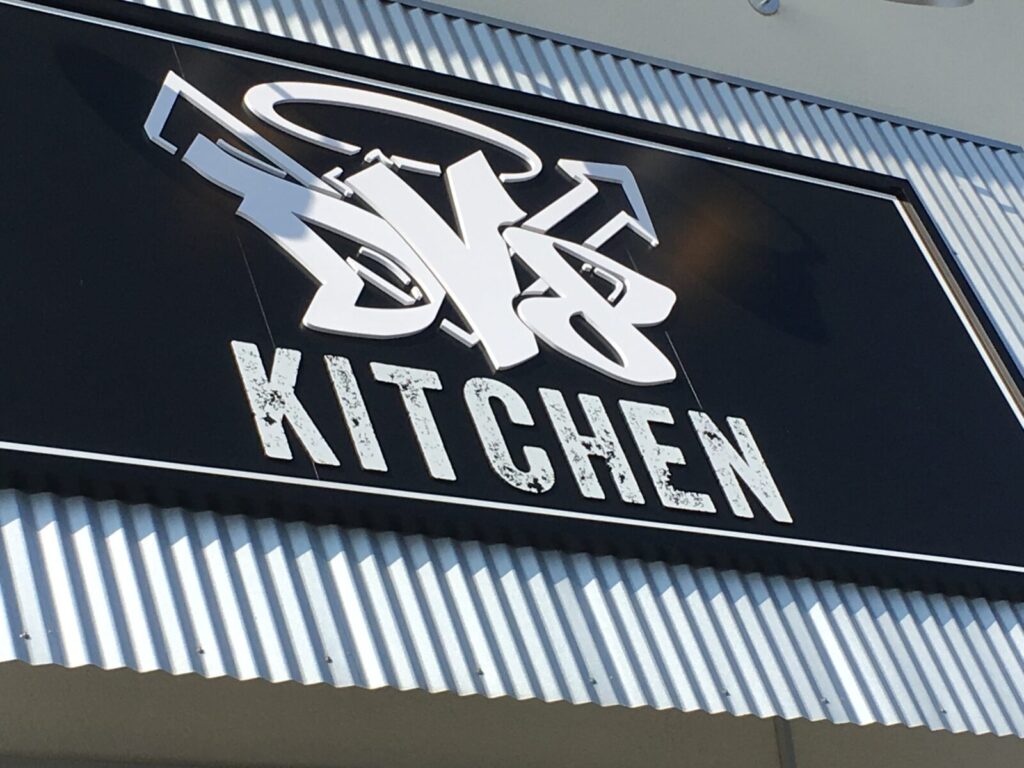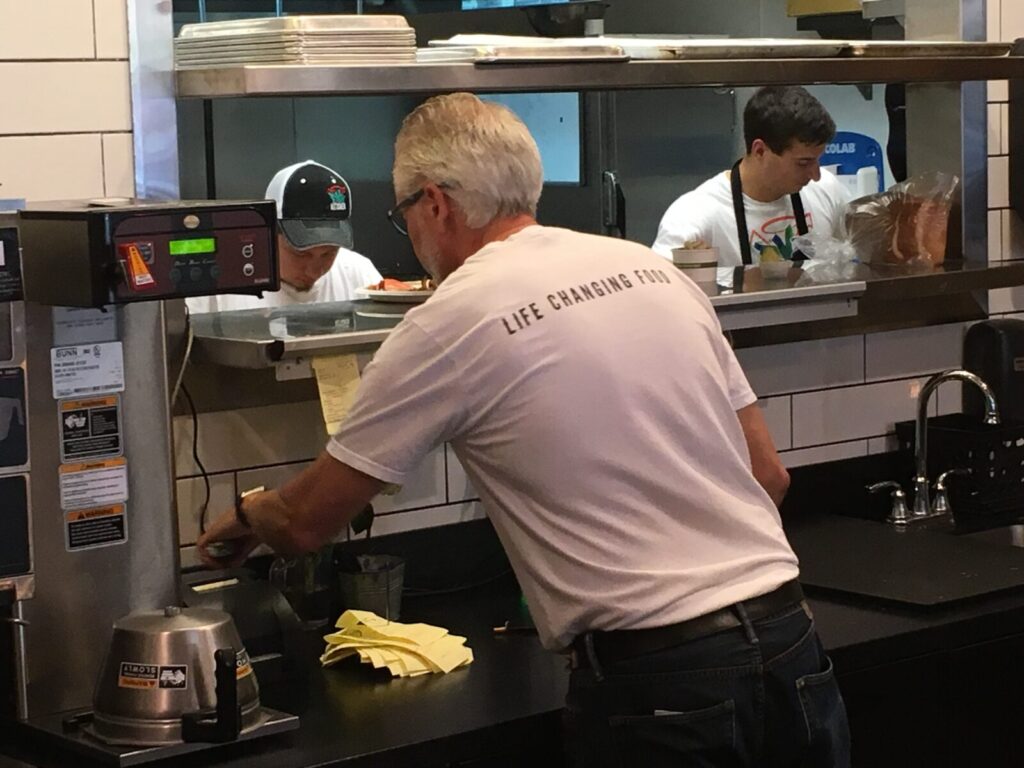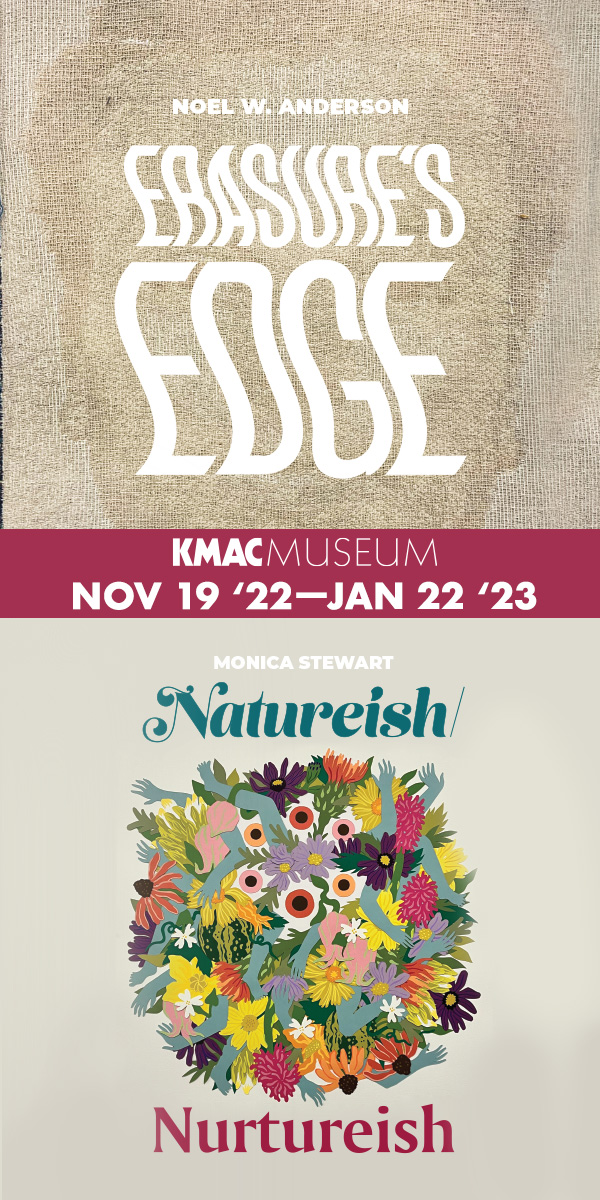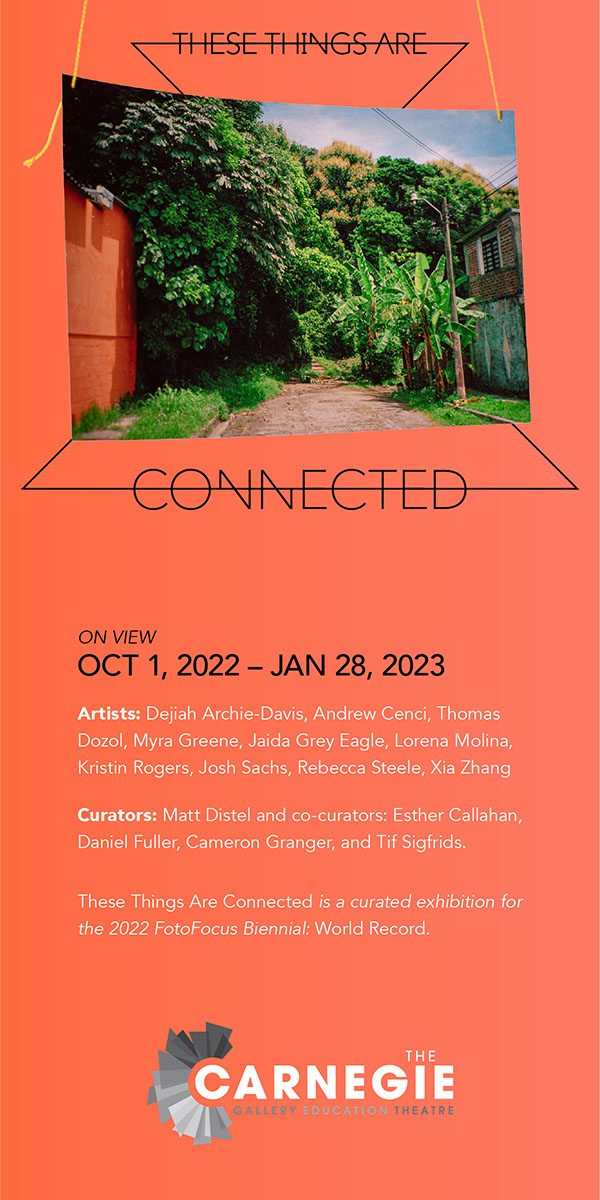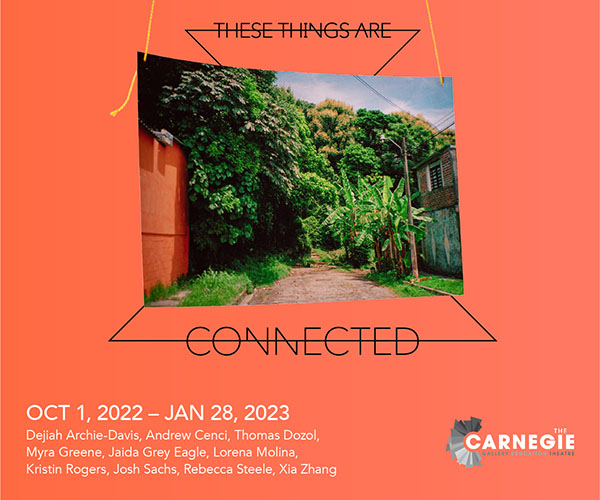Rob and Diane Perez are the brains and leading energy behind one of Lexington’s most successful restaurant concepts, Saul Good. You’ll find their signature eateries anchoring a corner of The Square in downtown Lexington, on Alysheba Way in Hamburg Pavilion, and in Fayette Plaza, next to Fayette Mall. Little known about this couple is what they do behind the scenes for their community. That giving spirit now has its own public face in a new eatery located at 867 South Broadway called DV8 Kitchen. Here’s an edited conversation with Rob Perez about this unusual concept.
Tom: What’s your philosophy about business social responsibility?
Rob: I used to think that it was only just to do a good job in the restaurant, but to be honest I think that our responsibility is far greater than that. We try to do whatever we can to help people. And, we don’t have a systemic approach to it, although we do have Tuesdays where we give 25 percent back to charities, nonprofits, and such. But, we try to seek out people who just really need help and we try to help them any way we can.
Tom: You’ve launched a restaurant specifically based on social responsibility. You recent opening of DV8 Kitchen on South Broadway.
Rob: Yeah. DV8 Kitchen was born out of my wife’s thought process. First and foremost, it’s kind of an amalgamation of all of our experiences. I went through rehab when I was 25 and my wife helped me considerably by just loving me and obviously holding me accountable. It really showed us how unbelievable her capacity for support is and her heart. So many of our staff members have not only been addicted to alcohol and drugs, but have died from drugs and alcohol. The internet has provided a tool for employers to check everybody’s background. Someone with an addiction generally has some sort of a background and so many people aren’t willing to give them chances. We came up with the idea that we wanted to employ people that are trying to help themselves. So, we partnered with five different rehab centers that happen to be transitional living facilities that would provide us with employees who are trying to help themselves. They’re in a structured living environment, they get drug tested every single week – that’s a third of our employees.
Tom: It could happen to anybody; economics don’t necessarily play a role in addiction.
Rob: Yeah. Heroin addiction right now is a perfect example of that. It’s affecting moms, dads, people that are white-collar workers. It shows no mercy to any group.
Tom: Now, to many employers, particularly those that have tried to start businesses in Eastern Kentucky, this might sound almost counterintuitive, given their difficulty in finding employees who can pass a periodic drug test; and yet here you are building a business around that.
Rob: Yeah. It is counterintuitive, but what we’re finding is that the people who are trying to help themselves have been more conscientious and more committed to the job. I think partly because if they lose their rights at the transitional living facility, they lose their rights in their employment with us. So, there’s a little bit bigger incentive for someone to do it. But I’d like to think that people are kind of starting from scratch and are trying to figure out how to do it better. They’re in programs that help them deal with past things that have happened to them that might be terrible and they’re really trying to unearth why they became addicted and are trying to deviate from the past. They’re trying to correct their behavior and trying to live with their past in ways that they’ve never done before. It’s really, really inspiring and it’s really impressive to see what they are doing today.
Tom: Is that how you came up with the name of the restaurant? “DV 8”?
Rob: It’s how we came up with the name of the restaurant.
Tom: It’s such a difficult thing to overcome, but yet I wonder if a future employer of one of your present employees would say, ‘now, here’s a person who really fought it and overcame it and that shows me something.’ Do you think that that’s realistic?
Rob: First, we’ve got to get rid of the stigma. Right now people aren’t even giving interviews to people that have been through, you know, trouble. And I think that most people that have gone through the rehab process probably would be less likely to even share it with the future employer. Because of HIPAA (privacy) rules they don’t have to tell them anything.
I wish that we could just be honest and figure out how to get along with the truth.
Tom: Do you think if we were to remove that stigma, we might discover that it’s far more prevalent than we would like to think it is?
Rob: Yeah, it really is. And – and, you know, at DV8 we’re learning something about the way that we think as human beings. It’s surprising that people are shocked at how good our food is and how good the service is and that it’s a great experience because it is a second chance employment opportunity for people. I think people are expecting the food, the service, and the atmosphere to be “less than” because it’s second-chance employment. I think that it’s just how we’re wired as human beings, but it’s quite the opposite for us. Our goal is to try to build pride and self-respect not only in our second-chance people, but all of our employees by being excellent at what we do.
And we believe that our food is 20 percent better than everybody else’s in this category, for a better price, and we give it to them with a smile and great experience to boot.
Tom: When you and Diane came up with this idea, did you take it out into the community and what kind of response did you receive?
Rob: Yeah. This isn’t about Rob and Diane Perez, this is about the people of Lexington and their heart. Diane and I only try to put things in writing and to try to cast a vision and that’s all we really did.
We developed a budget, $400,000 to build this restaurant. And we went to lawyers, general contractors, sign makers, landscapers, and everybody in between and said, ‘hey, look, this is our idea, we’re going to try to do good with it. We’re going to take all of our dividends and give them back to the community in the form of nonprofit donations. And, if you’re willing to come along with us, we’ll pledge to do a good job by a certain community that really needs help.’ And so, what happened was that we took our budget from $400,000 down to $250,000 from just Lexington craftsmen, mechanics, even, you know, tradespeople pitching in. It was just unbelievable what people did. We then turned it into an investment – and by the way, I tell everybody: ‘hey, do you want to make a really bad investment?’ And everybody listened and literally, in less than two months we were fully funded by people from here in Lexington who just said, ‘hey, look, this is a great idea, I want to be part of it.’ Even though only three out of ten restaurants make it past the third year, they signed a paper that said that we’d pay them back their principal within five years.
And it just defies logic. They all know that this is a highly, highly risky investment, but they did it because it was the right thing to do. And it is fully funded and fully generated by the graciousness of the people of Lexington.
Tom: What kind of experience are you having with the customers who come through the door?
Rob: Ah, it’s been really well-received. We are just thrilled. We do breakfast, lunch, and dinner and it’s been really brisk at lunch, it’s been really building at breakfast and we’re working on dinner right now. But, people have been really receptive.
Tom: You just opened DV8 so this may be a question that you don’t even want to think about at the moment, but what’s next for you and Diane? Anything on the drawing boards?
Rob: Saul Good has to be the thing that feeds our family and so, that is going to have to have a lot of attention and love and appreciation bestowed upon the people that are running it right now because both Diane and I are really working at DV8. We have to get DV8 up and running and it’s probably going to take a couple of more months, but I think what we do is we get DV8 on its feet and go love on the people that’s all good and then after that, we’ll see what happens.
But, I think we’re just focused on our family and on the two concepts that we have and God will show us the way somehow or another.
Listen to the full-length conversation with Rob Perez:

